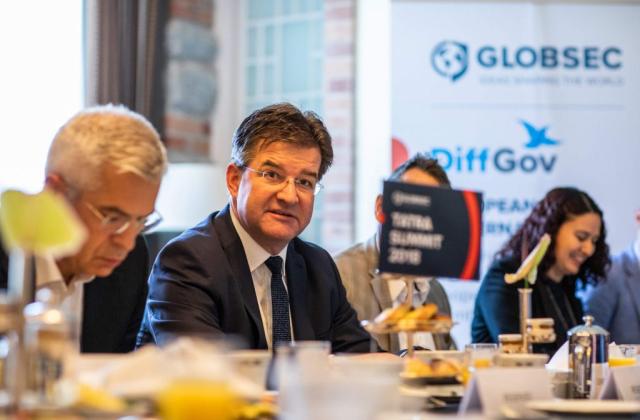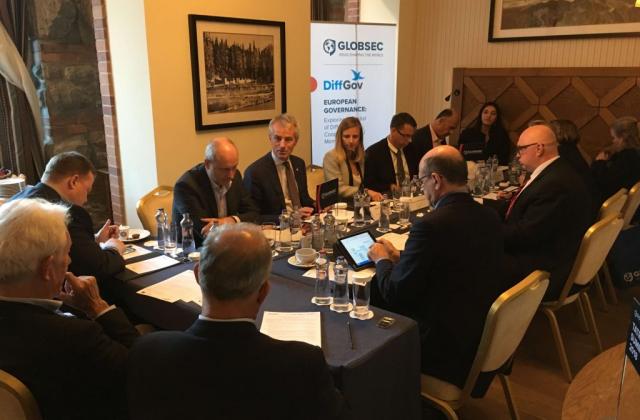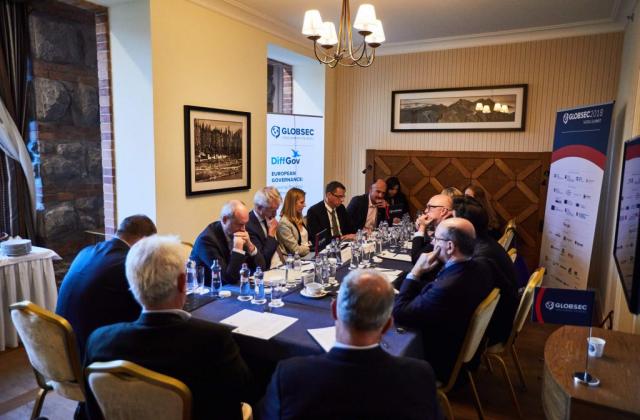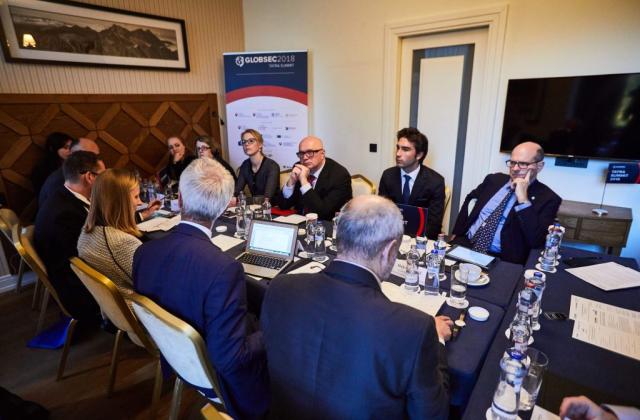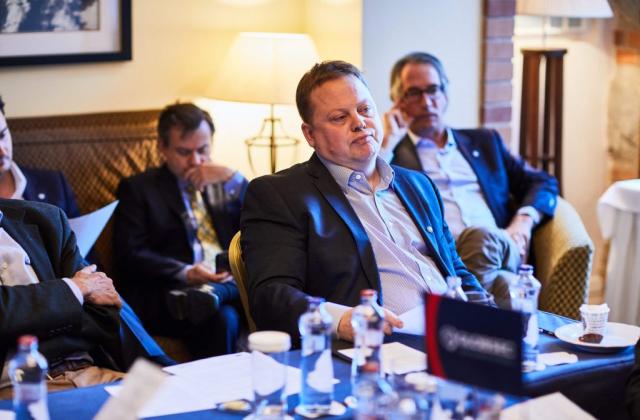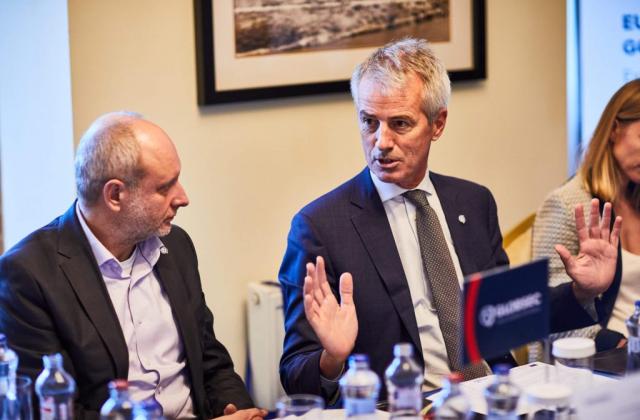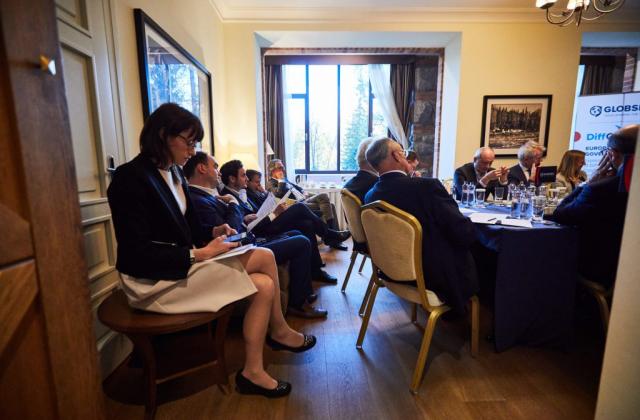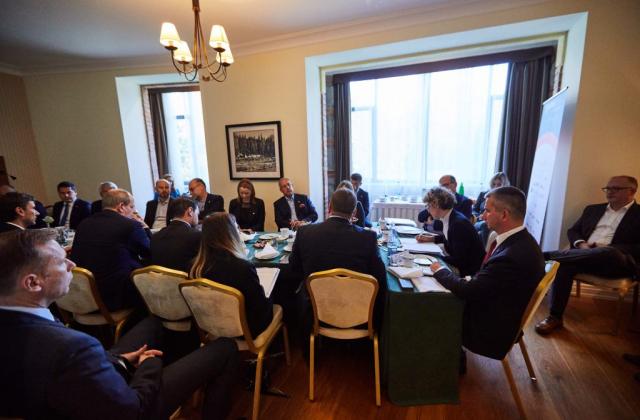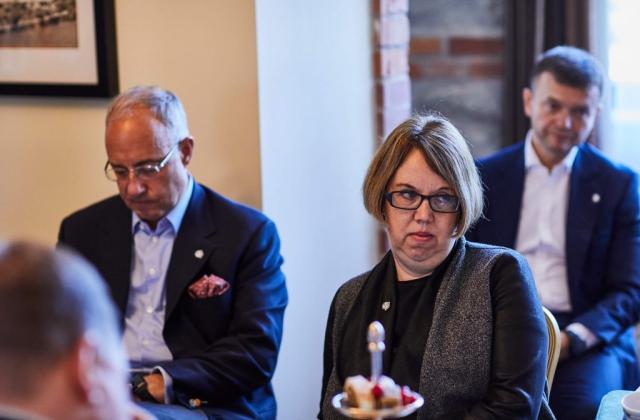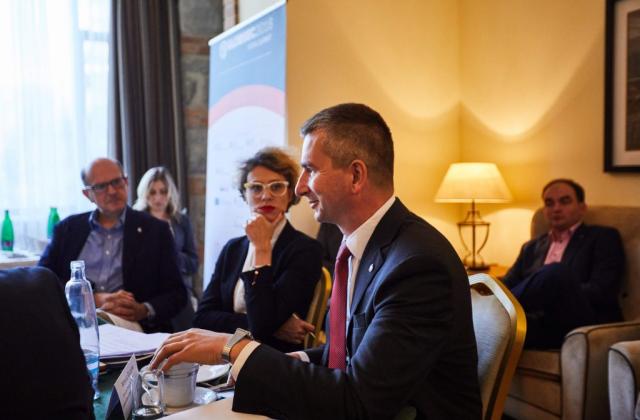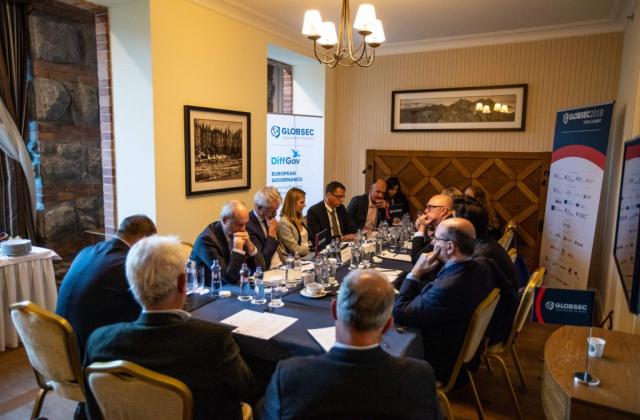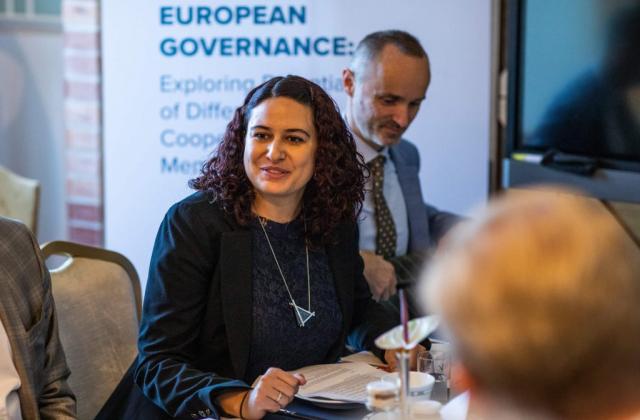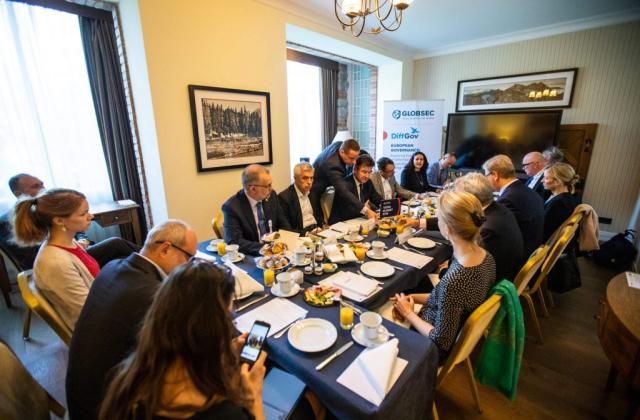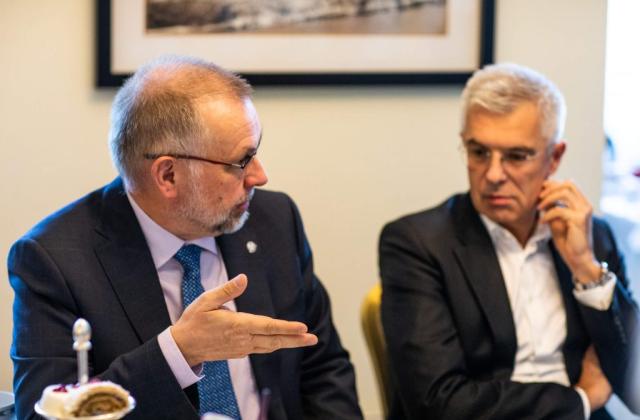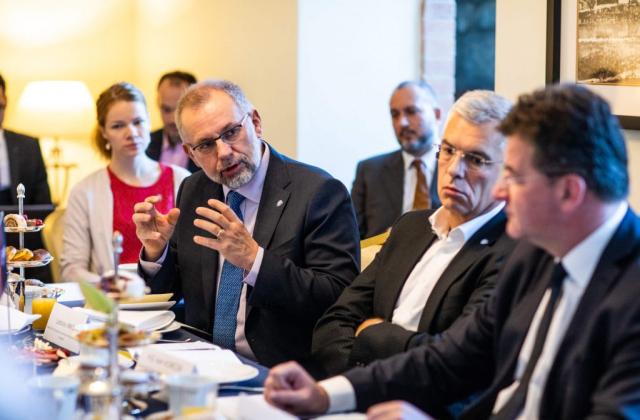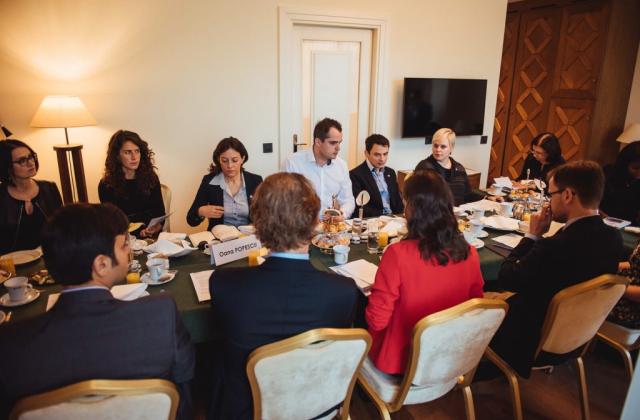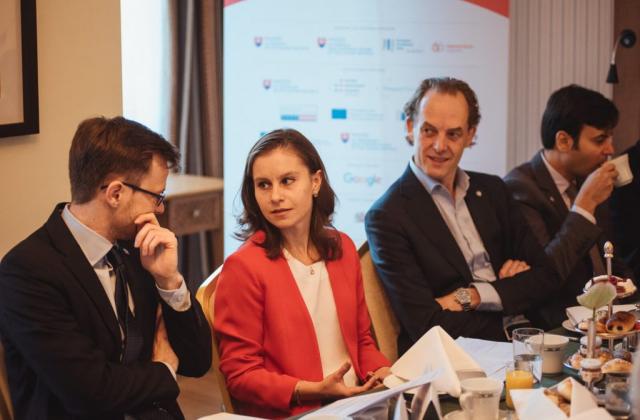05.10.2018 - Economic Governance in the European Union. Differentiated Cooperation in Action
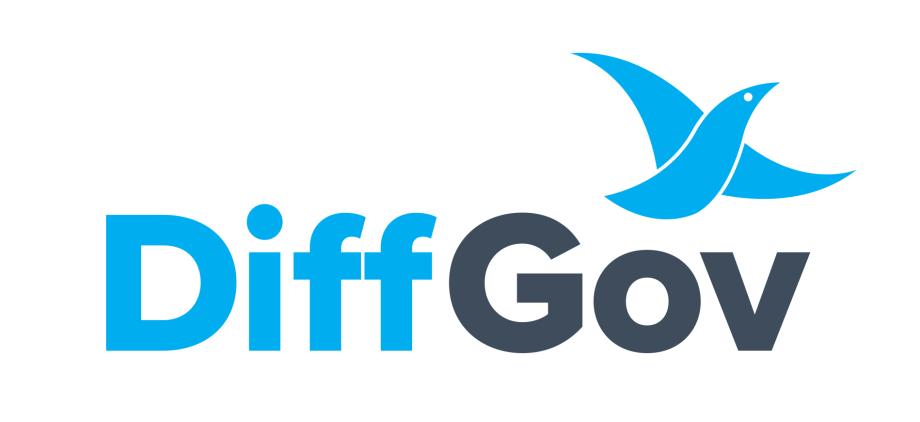
Completing Europe‘s Economic and Monetary Union, the lack of convergence in the EU, and the risk of facing next financial crisis without necessary tools were among the top concerns mentioned during the discussions on Europe’s economic future at GLOBSEC Tatra Summit 2018. The participants discussed also the consequences of Brexit to British and the EU 27 economy and the ways and means to facilitate the transition to new, knowledge-driven economies in the Central Europe so they adapt its increasingly outdated competitiveness model to the Western European standards.
While participants were more optimistic than last year about the EU economic future, the EU’s East-West divide remained apparent, particularly in discussions within the DIFF GOV project. Activities included four focus groups - “Eurozone: Resilient, Attractive and Beneficial for All?”, “Building a Vision for Europe Through the Lenses of a Constructive Central European Perspective”, “Brexit: the Countdown Has Begun” and “New Technologies vs. Old Skill Sets: Competitiveness in the Age of Disruptive Innovation”.
Participants in the first focus group emphasised that the European Union is currently fragmented and member states have different perspectives on the euro. While opinion polling suggests that 61% of Europeans support European economic and monetary union, the euro is often shown in a negative way, hence it is often misused for explaining the political, economic and social challenges that Member States face. Participants agreed that the completion of the banking union is crucial regardless of the high levels of mistrust that exist among the Member States to the idea.
This group also acknowledged that economic imbalances in the EU persist and it’s hard to correct them. Finally, participants could not agree on whether the Euro keeps the group together or is laying the foundation for further crises. What was clear for all is that the cost of leaving the eurozone is very high and a potential source of instability and collapse. All eurozone countries are aware of the potential costs.
Regarding the future enlargement of the eurozone, participants were rather sceptical. Croatia and Bulgaria, which are already knocking on the eurozone door, might have to wait longer for their time to come. That said, the former’s entry might be easier to facilitate given that the Croatian kuna has been pegged to the euro for quite some time.
In a session „Building a Vision for Europe Through the Lenses of a Constructive Central European Perspective“, participants warned that the EU‘s East-West divide (now also associated with a liberal-illiberal divide) is real and growing. They were also adamant that Central and Eastern should not reinforce divides and work on destroying stereotypes. The region must instead show that it has the same commitment to the eurozone as the rest of the common currency area. Participants also talked about the development of multispeed Europe. As they saw it, today‘s EU cannot go forward in a one-size-fits-all format. There‘s nothing wrong with orbits.
In a focus group „Brexit: the Countdown Has Begun“ the participants discussed the consequences of No Deal and a Hard Brexit. For them, No Deal will have serious economic consequences and is a less favourable scenario than a Hard Brexit. Yet, a Hard Brexit with the UK leaving the Single Market, will also likely result in lower GDP over the next at least 3 years. There will also be inevitable challenges for companies, but those are dependent on the deal, with the nature of the challenges being typically sector-specific. Participants underlined that it is important to keep good relations between the EU and the UK even after Brexit, but it should not be forgotten that once the UK leaves the block, it will become the third country to the EU. What is more, the time limit on the deal should be taken seriously and the transition period needs to end with a conclusive deal.
Finally, participants of the focus group “New Technologies vs. Old Skill Sets: Competitiveness in the Age of Disruptive Innovation” stressed that the pains of updating the economy towards new tech and digital era risk triggering even faster growth of social inequalities in Central Europe and may widen the EU’s East-West divide. Fears of being left behind have already produced unhealthy levels of populism in Europe and elsewhere. But the maintenance of the currently well-functioning industrial base should not be prioritised over the need to invest in innovation, new business models, and human capital. The transition of Central European economies will contribute to a more competitiveness model of the whole EU.
What to do? Divides in Europe exist and Member States need to be more responsible for their actions. They should also participate at a greater rate in European processes and start bridging gaps by working on issues where common understandings can be reached. Discussions about the origins of the last financial crisis and Franco-German differences on the euro should be changed to focus instead on how to target imbalances in the eurozone and wider EU. From there, EU institutions and Member states should work together to improve the profile of the euro among citizens. After all, improving the economic governance in the European Union is relatively easy compared to the increasingly divisive subject of immigration.
While participants were more optimistic than last year about the EU economic future, the EU’s East-West divide remained apparent, particularly in discussions within the DIFF GOV project. Activities included four focus groups - “Eurozone: Resilient, Attractive and Beneficial for All?”, “Building a Vision for Europe Through the Lenses of a Constructive Central European Perspective”, “Brexit: The Countdown Has Begun” and “New Technologies vs. Old Skill Sets: Competitiveness in the Age of Disruptive Innovation”.
